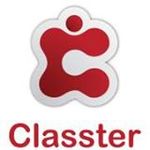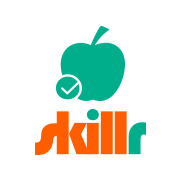Description

Classter

Study Island
Comprehensive Overview: Classter vs Study Island
Classter and Study Island Overview
a) Primary Functions and Target Markets
Classter:
- Primary Functions: Classter is a comprehensive cloud-based school management system designed to streamline various administrative and learning processes within educational institutions. Its features include student information management, attendance tracking, billing, scheduling, reporting, and a learning management system (LMS) integrated with communication tools. It supports K-12 schools, higher education, and vocational training centers.
- Target Markets: Classter primarily targets educational institutions of all sizes, ranging from small schools to large universities, across the globe. Its modular approach allows schools to customize the system according to their specific administrative and academic needs.
Study Island:
- Primary Functions: Study Island focuses on providing standards-based assessment and e-learning solutions to enhance students' learning experiences. It offers practice questions, instructional materials, and performance tracking based on state-specific standards. The tool is widely used for test preparation, homework assignments, and skill reinforcement.
- Target Markets: Study Island is designed primarily for K-12 education, helping schools and districts in the United States meet state-specific educational standards. It caters to students, teachers, and administrators looking for tools to improve student performance on standardized tests.
b) Market Share and User Base
-
Classter: While specific market share data might not be readily available, Classter caters to a global audience, which allows it to tap into various educational markets worldwide. Its broad feature set makes it a viable option for diverse educational institution types, from small private schools to large public universities.
-
Study Island: Study Island is more ingrained in the U.S. K-12 education system, particularly due to its alignment with state standards. Its focus on standardized test preparation and assessment gives it a strong presence in the K-12 sector within the United States, with a substantial user base comprising schools and districts committed to improving standardized test scores.
c) Key Differentiating Factors
-
Product Focus:
- Classter provides a comprehensive school management solution that covers administrative, academic, and communication needs of educational institutions, whereas Study Island is more focused on test preparation, standards-based assessments, and improving student performance through practice and reinforcement.
-
Target Audience and Reach:
- Classter serves a global audience and caters to a wider range of educational institutions, including K-12, higher education, and vocational schools. In contrast, Study Island primarily targets the U.S. K-12 market with a specialization in aligning with state educational standards.
-
Functionality and Features:
- Classter's strength lies in its all-in-one platform capability, offering a variety of modules that integrate administrative and academic functions. This makes it suitable for institutions looking for a unified system to manage operations comprehensively.
- Study Island focuses on providing subject-specific content and analytics to help educators tailor instruction and improve students' test readiness. Its advantage is in its vast library of practice questions and alignment with educational standards, which is specifically beneficial for schools emphasizing performance on metrics-based assessments.
In summary, while both Classter and Study Island serve educational markets, they differ in their core functions, target markets, and feature offerings. Classter acts as an all-in-one management platform for educational institutions globally, while Study Island specializes in assessment and preparation for K-12 schools in the United States. The key to choosing between them lies in an institution's specific needs, such as comprehensive management tools versus focused test preparation and assessment capabilities.
Contact Info

Year founded :
2015
+30 251 024 2632
Not Available
Greece
http://www.linkedin.com/company/classtercloud

Year founded :
2000
Not Available
Not Available
Not Available
http://www.linkedin.com/company/study-island
Feature Similarity Breakdown: Classter, Study Island
Classter and Study Island serve different purposes in the education technology ecosystem but share some common features. Below is a breakdown of their similarities and differences:
a) Core Features in Common:
-
Learning Management:
- Both platforms provide tools for managing learning activities. Classter, as a comprehensive school management system, includes a learning management module, while Study Island focuses on practice and assessment to reinforce learning.
-
Assessment and Evaluation:
- They both offer tools for assessing student performance. Study Island excels in practice tests and quizzes tailored to state standards, while Classter integrates assessments as part of broader educational management.
-
Reporting and Analytics:
- Both systems have reporting capabilities. Classter provides reports that cover academic performance, attendance, and more comprehensive management metrics, whereas Study Island focuses on analytics tied to student learning progress and benchmark performance.
-
User Management:
- Both platforms support managing users—students, teachers, and administrators. Classter does this as part of an extensive database management system, while Study Island's user management is more focused on accessing learning content.
b) User Interface Comparison:
-
Classter:
- Classter has a modular design allowing institutions to choose which functionalities to activate. Its interface is typically robust, feature-rich, and caters to comprehensive school management functions. While powerful, it can be complex for users not needing its full capabilities.
-
Study Island:
- Study Island presents a more focused user interface tailored to students and educators specifically for student practice and assessments. Its interface is straightforward, emphasizing ease of access to practice questions, assignments, and immediate feedback, which makes it accessible and intuitive for students at different grade levels.
c) Unique Features:
-
Classter:
- Comprehensive School Management: Classter sets itself apart as a full-fledged school management system, offering features like admissions, timetable scheduling, and academic records beyond what Study Island provides.
- Customizable Environment: Institutions can customize Classter’s environment extensively to suit their operational and educational needs.
-
Study Island:
- Standards-Based Content: Study Island’s unique proposition is its vast library of standards-aligned practice content across subjects, which is specifically designed to prepare students for standardized tests.
- Gamified Learning: Engages students through gamified elements, turning learning activities into more interactive and engaging experiences.
In summary, Classter acts as a comprehensive tool for managing various aspects of school administration, while Study Island is highly specialized in providing standards-aligned practice and assessments. Depending on an institution's needs, they might choose one based on the broader management capabilities of Classter or the focused educational and assessment tools of Study Island.
Features

Not Available

Not Available
Best Fit Use Cases: Classter, Study Island
Classter and Study Island are both educational technology platforms, but they serve different purposes and cater to different needs within the education sector. Here's a detailed look into their best-fit use cases:
Classter
a) Best Fit for Classter:
-
Types of Businesses or Projects:
- Educational Institutions: Classter is best suited for schools, colleges, universities, and other educational institutions that are seeking a comprehensive School Management System (SMS). It offers solutions for managing academic workflows, including student admissions, grading, timetable scheduling, and communication with parents and students.
- Training Centers: Organizations that provide training and professional development courses can benefit from Classter’s ability to manage both academic and administrative tasks efficiently.
- Multi-Campus Organizations: Institutions with multiple campuses or branches can effectively manage data and operations from different locations using Classter’s centralized system.
-
Industry Verticals and Company Sizes:
- Classter caters to both small and large educational institutions, offering scalable solutions.
- The platform is ideal for K-12 schools, higher education, and any education-related organizations needing integrated solutions to manage administrative tasks.
-
Additional Features:
- Classter provides a wide range of modules such as CRM, LMS, and SIS, making it a versatile tool for institutions aiming to digitize and streamline their operations.
- It supports multiple curriculums and complex academic structures, making it flexible to adapt to various education systems globally.
Study Island
b) Best Fit for Study Island:
-
Scenarios for Preferred Use:
- Standards-Based Learning: Study Island is tailored for K-12 students and is designed to provide standards-based practice and assessments. It's an excellent choice for schools and districts aiming to improve students' standardized test scores by offering practice content aligned with state standards.
- Supplemental Education Programs: It's a valuable tool for after-school programs or tutoring centers that focus on reinforcing knowledge in math, reading, science, and social studies.
- Test Preparation: Schools that conduct preparatory courses for state assessments and need a platform for practice tests and quizzes would benefit from Study Island.
-
Industry Verticals and Company Sizes:
- Study Island is mainly tailored for K-12 education, and is best for districts and schools looking to enhance test preparedness.
- It is also suitable for individual educators and small schools needing cost-effective tools for student practice and skill improvement.
-
Additional Features:
- The platform provides immediate feedback and detailed reports, helping educators identify students’ strengths and weaknesses.
- Study Island supports differentiated instruction, allowing teachers to tailor content to individual student needs.
In conclusion, Classter is the go-to solution for educational institutions seeking comprehensive management of academic and administrative processes, while Study Island excels in providing practice and assessment tools aimed at improving student performance on standardized tests. Both platforms cater to different aspects of education technology with Classter focusing on broader institutional management and Study Island on targeted learning outcomes.
Pricing

Pricing Not Available

Pricing Not Available
Metrics History
Metrics History
Comparing teamSize across companies
Conclusion & Final Verdict: Classter vs Study Island
When evaluating Classter and Study Island, several factors such as functionality, ease of use, pricing, target audience, and the specific needs of the educational institution must be considered. Here's a detailed conclusion and final verdict for both products:
a) Best Overall Value
Classter offers the best overall value for institutions that require an all-in-one solution for managing administrative tasks, academic processes, and communication across various educational levels. Its comprehensive feature set justifies its value for schools looking for an integrated system.
Study Island provides excellent value for schools and educators focused specifically on enhancing student learning outcomes through practice and assessment. It is particularly valuable where test preparation and standards-based learning are priorities.
b) Pros and Cons
Classter
Pros:
- All-in-One Solution: Classter integrates various functionalities across admissions, academic management, and communication, reducing the need for multiple separate systems.
- Customizability: Highly customizable to fit the workflows and needs of different types of educational institutions.
- Scalable: Suitable for institutions ranging from K-12 schools to higher education.
- Broad Functionality: Offers tools for CRM, student information systems, learning management, and more.
Cons:
- Complexity: Due to its extensive features, there can be a steep learning curve initially for some users.
- Implementation Time: Setting up and customizing the platform might require more time and resources.
- Pricing: Can be costlier compared to simpler systems, which might be a consideration for smaller schools with limited budgets.
Study Island
Pros:
- Focus on Learning Outcomes: Specifically designed to reinforce learning with standards-based content and online practice.
- Ease of Use: User-friendly interface aimed at both teachers and students for direct engagement with learning materials.
- Progress Monitoring: Offers robust analytics and reporting to track student progress effectively.
- Affordable: Generally more affordable, especially for institutions focused purely on enhancing academic performance in core subjects.
Cons:
- Limited Scope: Primarily focused on learning and assessment, lacking broader administrative capabilities.
- Customization: Less flexibility when it comes to customizations outside of its core educational offerings.
- Content Depth: Some educators may find that it does not cover every subject area in the depth required for all curriculums.
c) Recommendations for Users
-
For Institutions Needing Comprehensive Management: If your institution requires robust administrative tools combined with academic management, Classter is the more suitable choice. This is ideal for larger institutions or those aiming to streamline multiple processes through a single platform.
-
For Focused Educational Enhancement: If the primary need is to enhance student learning outcomes with practice materials and assess competence following specific standards, Study Island is preferable. It is particularly beneficial for schools prioritizing standardized test preparation.
-
Consider Hybrid Solutions: Schools may also consider using both systems in conjunction, leveraging Classter for administrative and broad educational management while employing Study Island for targeted instructional purposes.
Ultimately, the decision should align with the specific needs and budgets of the educational institution, ensuring that the chosen system supports both administrative efficiency and educational outcomes.
Add to compare
Add similar companies



